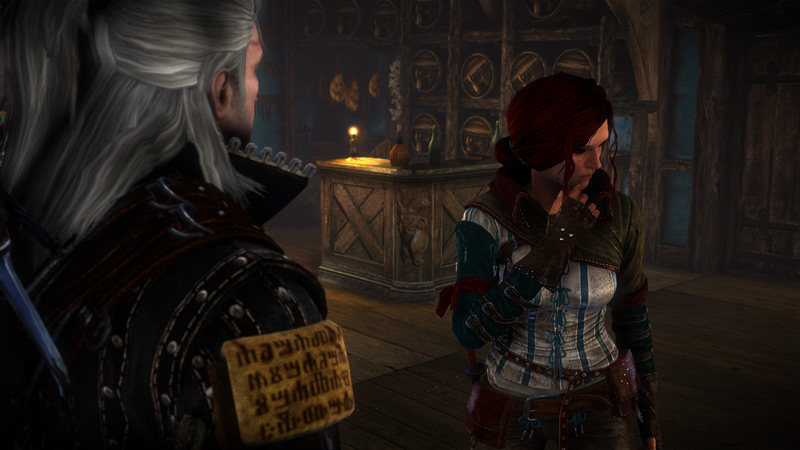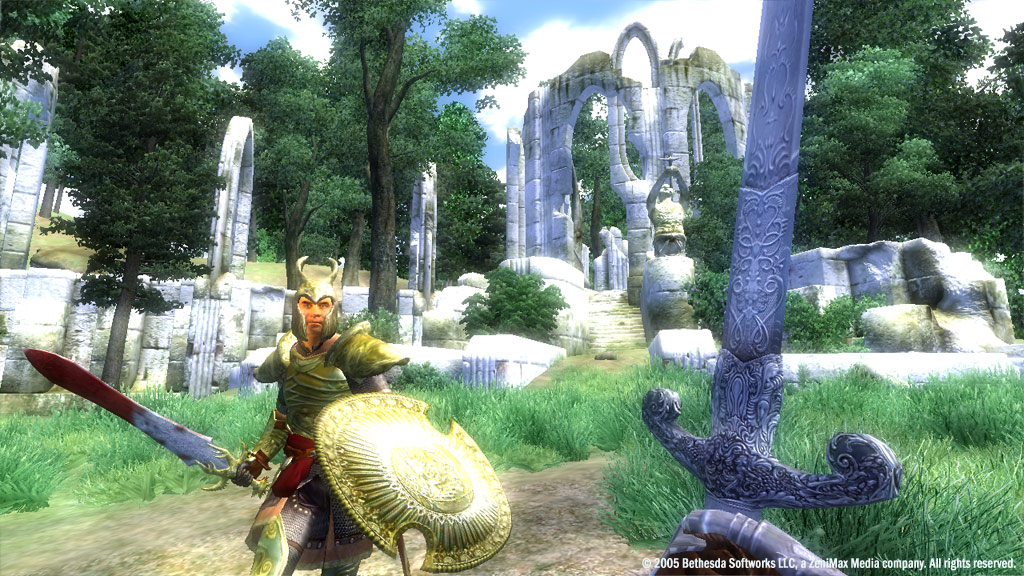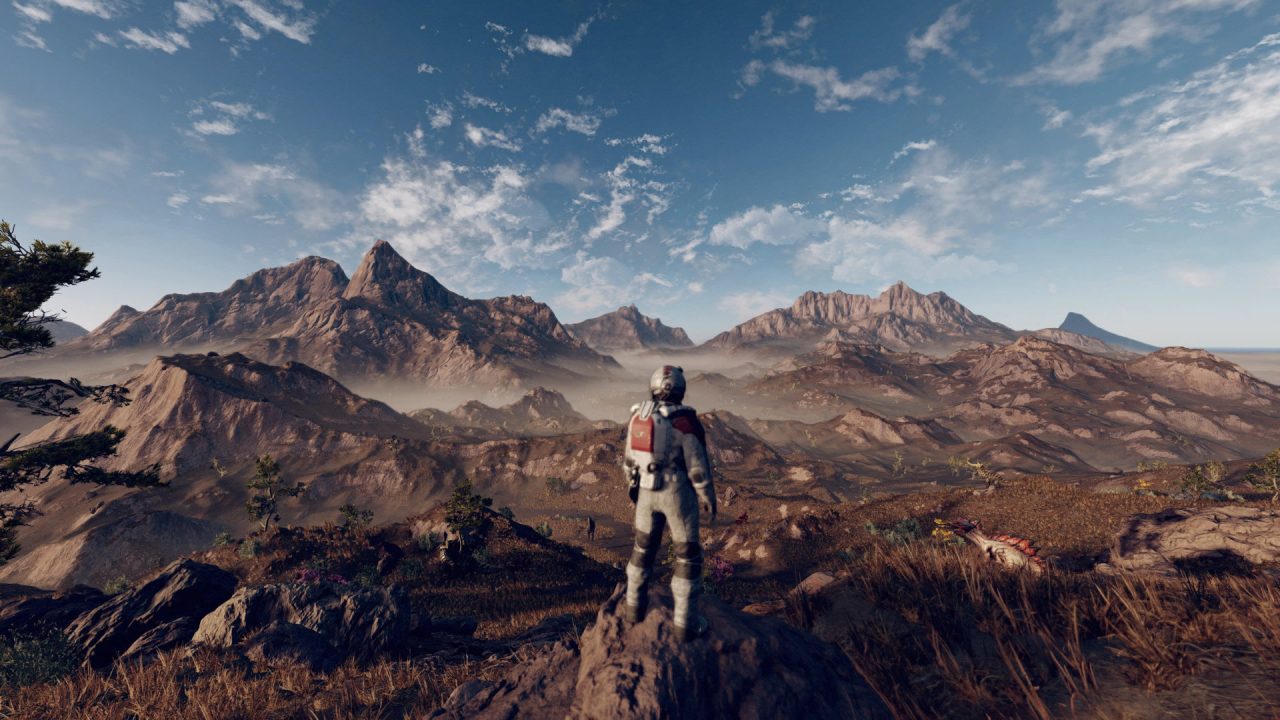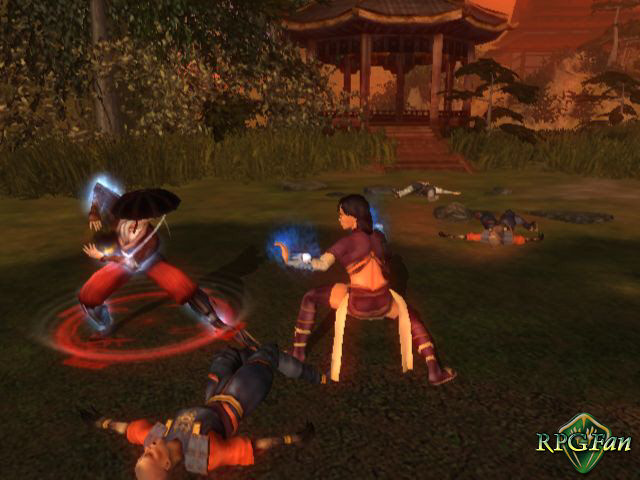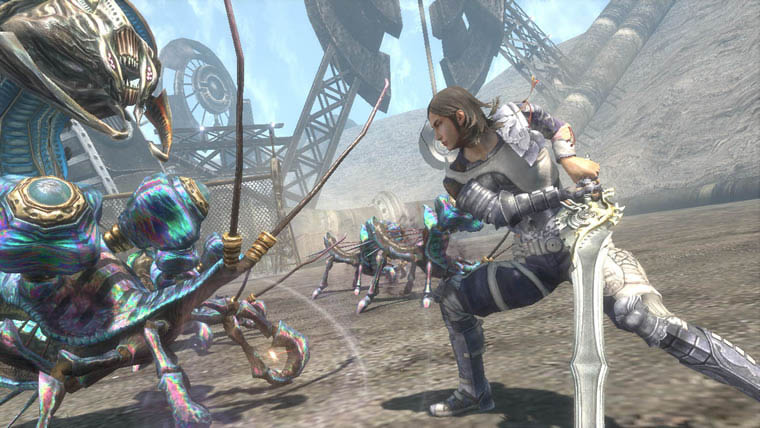In the RPG discourse, Sony and Nintendo’s consoles garner the most affection, while Microsoft tends to be overlooked. But why?
I think this is due mainly to a couple of factors. First, PlayStation and Nintendo were already established juggernauts when Microsoft released their first console. Secondly, two of these three companies are based in Japan and thus have deeper libraries of JRPGs. Microsoft has also (by their own admission) failed to make significant inroads into the Japanese market.
However, Xbox is no slouch when it comes to its RPG legacy over the years. Going back to Xbox 1…ahem, original Xbox (I admit they get a failing grade for their console naming conventions), there have been some great Xbox-exclusive console RPGs. So, I compiled a list of the best Xbox RPGs in their 20+ year history.
I considered only games that had or have some form of Xbox exclusivity. Some games on the list have been released on other consoles, but if their initial release was Xbox only, they qualified for my list. I also disregarded PC versions and focused only on console versions, meaning a concurrent PC release did not disqualify a game.
So here they are in no particular order: the best Xbox RPGs. The list kicks off with the game heralded as the “best game ever”…
Fable
…according to its creator, Peter Molyneux. Jokes aside, Molyneux certainly overhyped Fable leading up to its release to the point that it was destined to disappoint when it could not deliver on its many promises (he has since expressed regret for his actions during this time). Aggressive sales pitches aside, Fable is a solid action RPG and one of Xbox’s first big exclusive IPs. Even with the perceived failures to live up to its own hype, Fable still received favorable reviews and maintains an 85 score on Metacritic.
The game did include elements that were still novel at the time, such as your hero’s choices impacting how NPCs interact, and changing your appearance. Fable also spawned a remastered collection and two direct sequels. What makes the game stand out for me is the British-style humor it leans into (not unlike Monty Python). I was relieved to see in a recent trailer that the developers seem to have maintained this style of humor for the upcoming series reboot. Fable: Anniversary is the way to go if you want to experience this European fantasy for the first time.
Speaking of European fantasy RPGs…
The Witcher 2: Assassins of Kings
Believe it or not, CD Projekt RED developed two Witcher games before the mega-hit The Witcher 3: Wild Hunt. Crazy right? No, they didn’t go the Star Wars route and start mid-series. The Witcher 3 became such a mainstream success that its predecessors have been nearly forgotten (though that may change with the upcoming Witcher remake). While the series’ debut game never reached beyond PC, the second offering got an exclusive console port on the Xbox 360.
The Witcher 2: Assassins of Kings contains many gameplay features that made Wild Hunt a smash hit. The game does not contain as vast an open world or as long a story, but those are not knocks against it. The open-world areas in The Witcher 2 are smaller but feel more dense and fleshed out. The narrative is shorter, but your choices have an impact and add to the game’s replayability. I encourage any Witcher fans who have never given The Witcher 2 a chance to do so. I think you will be pleasantly surprised.
Also, a fun fact: Poland gifted a copy of the game to then-US President Barack Obama in 2011. I won’t get into the irony of a diplomatic gift where the story focuses on regicide, but it’s still pretty cool.
The Elder Scrolls (Morrowind and Oblivion)
Bethesda has always been a big player for Xbox, which will continue into the foreseeable future with Microsoft’s acquisition of the developer. It started on the original Xbox with The Elder Scrolls III: Morrowind. In retrospect, it is still hard to believe that in 2002, such a large open-world RPG could run on a home console.
Morrowind is from a time when Western RPGs were more primitive and leaned toward a “hardcore” audience. Things we take for granted in modern titles, like objective markers, quest logs, and organized inventory management systems, are all absent. This makes Morrowind more of a challenge to navigate and advance through, while simultaneously creating a feeling of immersion uncommon in other RPGs of the time.
While Morrowind set the primitive framework for console open-world RPGs, its sequel, The Elder Scrolls IV: Oblivion, established a firmer foundation. Oblivion — along with Fallout 3 — created the formula for Bethesda RPGs that their games still generally adhere to. Oblivion’s console version was exclusive to Xbox 360 for a full year before it was released on PlayStation 3, further establishing the relationship between Bethesda and Microsoft, which ultimately led to a $7.5 billion acquisition. And while we’re on that topic…
Starfield
The latest Bethesda RPG and the first to release post-Microsoft acquisition ventures away from Cyrodiil and the Wasteland to the far reaches of space. Starfield takes many of the familiar elements of a Bethesda RPG and expands upon them. The gunplay is tremendous, the characters are memorable, and the sheer scope of the freedom it allows is immense.
The game received a broad spectrum of review scores upon launch, which I attribute to the overall divisive opinions of all Bethesda RPGs. “Haters gonna hate,” as they say. I am willing to give Bethesda games a pass for their “jank” as a trade-off for the sheer size and freedom they allow. Starfield suffers from the least amount of said jank of all the Bethesda games I’ve experienced and should continue improving with patches over time. Starfield lives up to its name. Even after rolling credits on the main story, I feel like I have barely scratched the surface of the secrets to be discovered. I also can’t wait to see where the mod community takes Starfield in the future.
Before I go and crown Starfield as the premier sci-fi RPG on Xbox, a couple of BioWare classics would like a word. Starting with…
Star Wars: Knights of the Old Republic
Growing up in the ’90s, there was no shortage of Star Wars video games — especially once the prequel movies started to hit theaters. There were shooters, platformers, and even an underrated pod racing game. Licensed Star Wars games never captured my interest growing up. That is, until BioWare’s amazing RPG landed on Xbox in 2003.
Star Wars: Knights of the Old Republic is not just the greatest Star Wars game; it’s the greatest licensed role-playing game ever. A bold statement, I know. It doesn’t rely on the content from the movies to tell its story; rather, it tells an original tale and places you in a time some 4,000 years before the Skywalker saga. Many familiar Star Wars races and elements can be found (lightsabers, droids, Wookies, etc.) within KotOR, but it is abundant in originality. The storytelling is on point and contains one of the most impactful plot twists in Star Wars history, right up there with Vader’s reveal as Luke’s father.
KotOR set a new standard for what a Star Wars game can be that has yet to be outdone (we’ll see if the announced remake — should it release — can take the crown). Perhaps its most impactful aspect is that it allowed BioWare to create their own space epic series in the future, and did they ever deliver…
Mass Effect (1 & 2)
Mass Effect feels like an evolved form of Knights of the Old Republic. It offers the same BioWare strengths of strong storytelling, choice-driven dialogue, and character development in an original sci-fi universe. Mass Effect thrives in its world-building and depth of lore. Alien races feel fully realized, each with their own histories and relationships with other species. There is also political intrigue on a galactic level as humanity is still finding its place in the established order.
Though the original Mass Effect is not without its flaws (i.e., imbalanced gameplay and the notorious Mako), it is a fantastic experience, and its sequel — Mass Effect 2 — perfected many of the game’s systems. Mass Effect 2 can regularly be found atop “greatest game” lists to this day. The game is virtually flawless. Many memorable characters from the first game return in Mass Effect 2 to help Shepard on their quest to bring down the Collectors before a universal apocalypse.
Unlike the original, Mass Effect 2 was released on PlayStation 3 a year after its initial Xbox 360 launch. However, the Xbox version still had the advantage of carrying over your save from Mass Effect, which affected certain in-game events and interactions. There are also many callbacks to the first game that would be lost on anyone who had not played it. BioWare was top-tier in RPG output in the 2000s before EA had to go and ruin things. Between the company’s two sci-fi epics, they released a lesser-known RPG based on ancient Chinese mythology…
Jade Empire
Jade Empire was BioWare’s first RPG not based on an established IP. It takes heavy inspiration from Chinese mythology and kung fu movies, with fluid martial arts action combat that offers quite the variety for a game of the time. Characters can perform many styles, from Leaping Tiger to Thousand Cuts and even Drunken Master.
The familiar BioWare moral system is found in differing fighting styles. Jade Empire‘s morality system stands out because neither path is explicitly good or evil, but rather based on the differing philosophies that focus on benevolence vs. self-reliance. The game is on the short side for a BioWare RPG, but that makes it perfect for players not looking for an 80-hour commitment. Of all the BioWare RPGs, Jade Empire is the most overlooked and thus underrated. I will never entirely give up hope for a sequel or pass on the chance to sing its praises, as it remains one of my favorite games of all time.
So let us shift from a game based in the East (but made in the West) to a couple of RPG classics made in the East…
Lost Odyssey
This list wouldn’t be complete without some JRPG representation, and thankfully, Xbox has delivered some classics. Perhaps the most memorable of these is Lost Odyssey. The game’s story was born from the mind of Final Fantasy creator Hironobu Sakaguchi, with a soundtrack composed by Nobuo Uematsu. That alone would be enough to lure in JRPG enthusiasts, and those who took the bait were treated to an epic adventure.
Lost Odyssey felt destined to be a classic with a dream team at the helm. It was the second Xbox release for Sakaguchi’s Mistwalker studio following Blue Dragon (another solid albeit somewhat forgettable RPG). However, the development process was rocky, mainly due to technical issues stemming from the choice to use Unreal Engine 3 for a JRPG. Lost Odyssey shines in its visuals and story. It is quite possibly the most graphically impressive JRPG of its time. Several playable characters — including the main protagonist, Kaim — are immortals, and the story explores the emotional effects that immortality would have on a psyche. The story comes to life through short, visual novel-style stories called “A Thousand Years of Dreams.”
Lost Odyssey was a well-received hit for Xbox, especially in Japan. If you’re looking for a deeper dive into the game, RPGFan’s Retro Encounter recently did a two-part analysis (Part 1, Part 2) that I highly recommend.
Tales of Vesperia
Now, we move from a standalone JRPG to a new entry in an established series. Tales of Vesperia was initially planned for the PlayStation 2, but Namco wanted to avoid hardware limitations and take the Tales series into the next console generation. Since the developers did not yet have access to the PlayStation 3, Xbox 360 became the new destination.
Vesperia is one of the best in the Tales series. The cel shaded characters and locales look fantastic, the battle system is solid, and it has some of the more memorable characters in a Tales game. Yuri, Estelle, and Repede are my personal favorites. Tales of Vesperia is simply a fun and memorable experience. Though the best way to experience it today is through the Definitive Edition (available on multiple platforms), Vesperia will have always been an Xbox game first. Now that I think about it, Tales of Vesperia and Tales of Symphonia are my two favorite Tales games. Guess I just prefer non-PlayStation entries. Sorry Sony.
Final Thoughts
So there you have it: my little historical romp through the Xbox RPG catalog. The past year has not been the strongest stretch for the Xbox brand in terms of game releases (Redfall is a prime example) or its reputation. In truth, Xbox’s slump can be traced back to the atrocious Xbox One reveal, an event so damaging that they have never truly recovered. Starfield’s success is a big win for the brand, and hopefully, future RPGs (like the Fable reboot) can share similar success. Time will tell if Xbox can rebuild its reputation in the RPG landscape.



